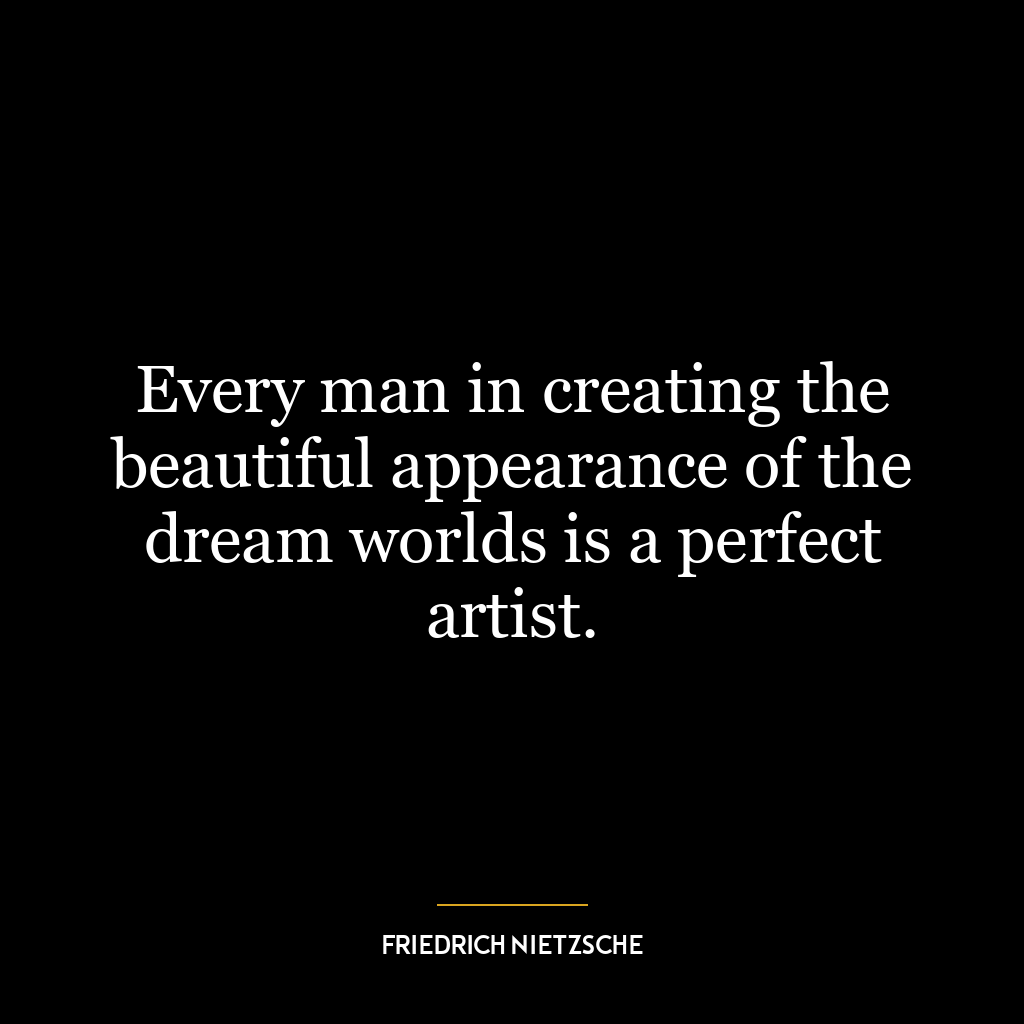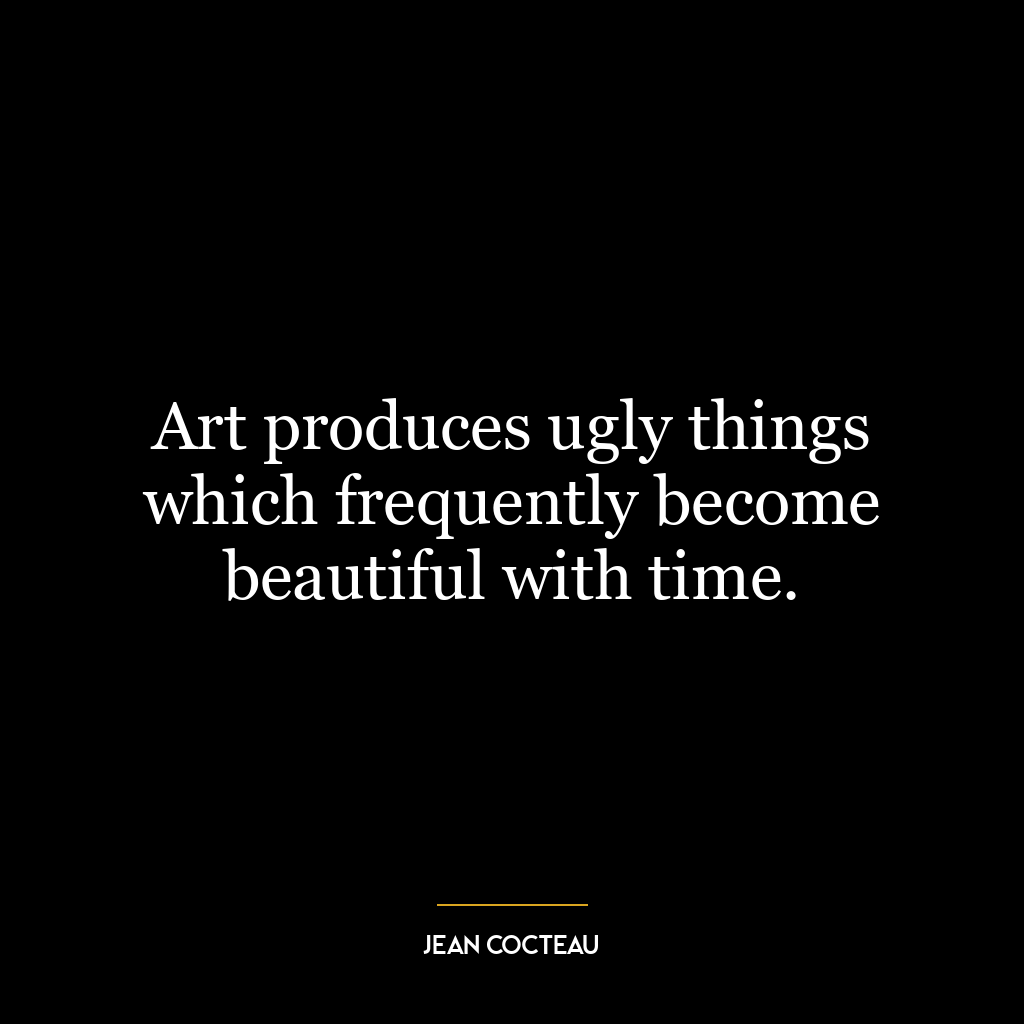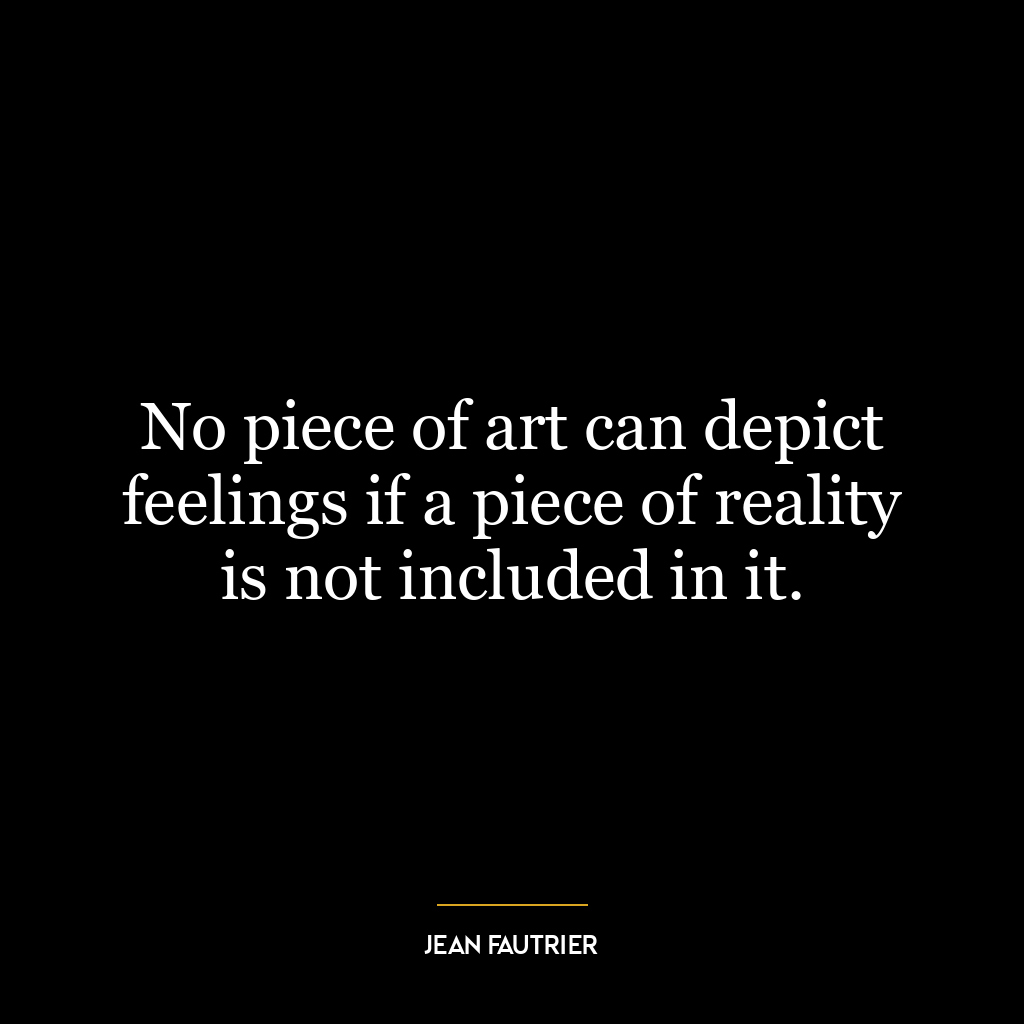Every man in creating the beautiful appearance of the dream worlds is a perfect artist.
This quote suggests that each individual, in the process of dreaming, is an artist. The “dream worlds” referred to are not just the literal dreams we experience during sleep, but also the dreams, aspirations, and visions we hold for our lives. When we envision these dreams, we create a beautiful, idealized vision of what we want our life to be – hence, we are all artists in our own right.
Nietzsche is highlighting the human capacity for creativity and imagination. He suggests that this ability is not limited to those traditionally considered artists, but is a universal quality. We all have the power to shape and mold our reality, just like an artist with a canvas.
This idea is deeply relevant in today’s world and in personal development. In a society that often values practicality over creativity, Nietzsche’s quote is a reminder of the importance of dreams and imagination. It suggests that we should not just passively accept the world as it is, but actively shape it according to our own vision.
In terms of personal development, this quote can be seen as a call to embrace our inner artist. This doesn’t necessarily mean becoming a painter or a musician, but rather using our creativity to shape our own lives. This could be through setting goals, visualizing our future, or even just daydreaming about the life we want to lead.
Furthermore, this quote could also be interpreted as a call to value our dreams and aspirations. Too often, we dismiss our dreams as unrealistic or unattainable. But Nietzsche’s quote suggests that these dreams are not just idle fantasies, but a form of art – and like any form of art, they have value.
In conclusion, Nietzsche’s quote is a celebration of the human imagination and our ability to dream. It serves as a reminder that we all have the power to shape our own reality, and that our dreams and aspirations are a form of art in their own right. Whether in personal development or in society at large, this is a powerful message to keep in mind.















